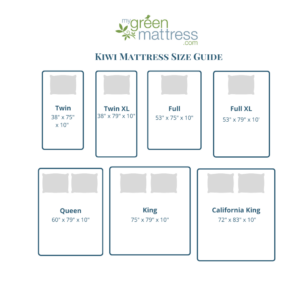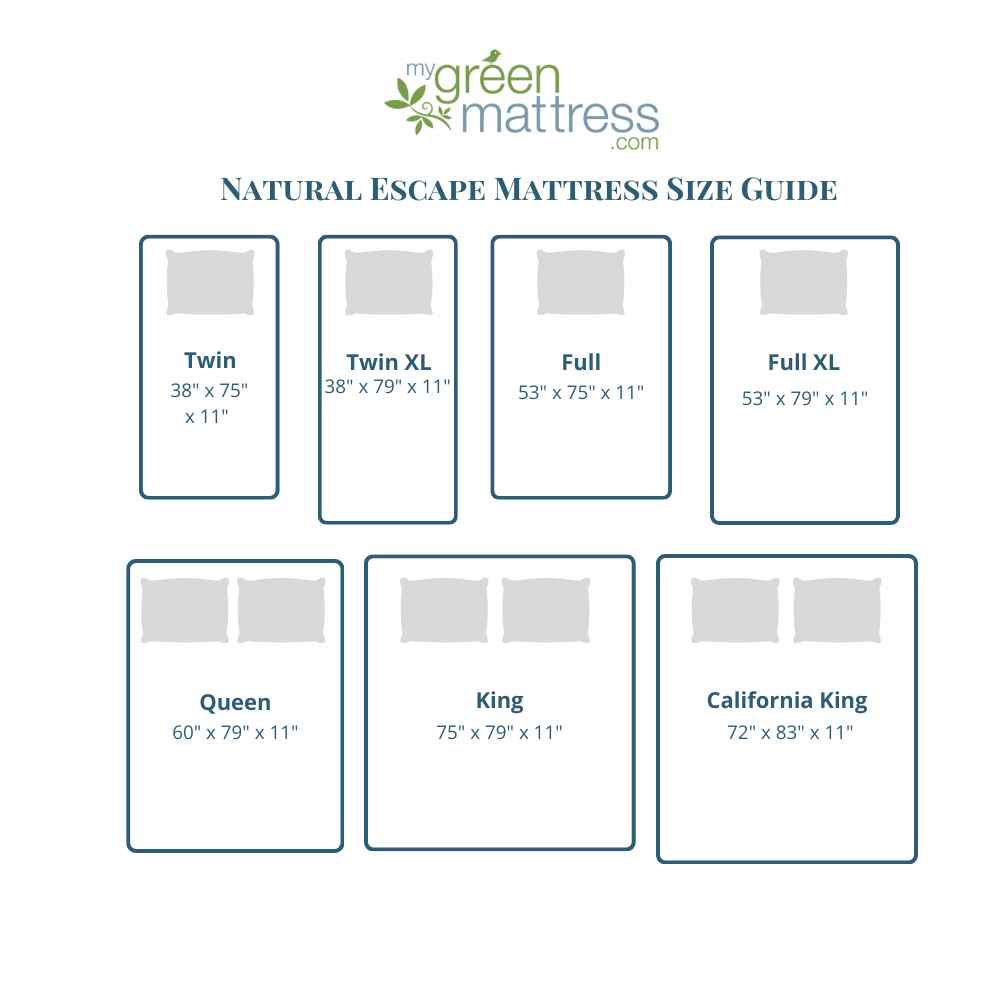Being a new parent is a time rife with challenges. You’re learning how to raise a healthy child without doing anything that would stunt their physical growth or mental development.
One of the biggest challenges is helping your baby sleep long enough and soundly enough. Indeed, newborns need about 12 to 18 hours of sleep per day, and that’s not easy to get right on day one.
This likely has you wondering whether or not babies sleep better in their own room, with you, and in any particular temperature. So, do babies sleep better in their own room? We’ll address that and more in this blog post.
Overview:
- Why Does My Baby Sleep Better In My Bed?
- Baby Sleeps Better On Stomach: Is It True?
- Do Babies Sleep Better On Their Stomach?
- Do Babies Sleep Better Warm Or Cool?
- Do Babies Sleep Better In The Cold?
- When Do Babies Start Sleeping Better?
- Why Do Babies Sleep Better When Held?
- Do Bigger Babies Sleep Better?
Let’s jump in!

Why Does My Baby Sleep Better In My Bed?
Whether you’ve been a parent for one day or one decade, you’ve seen that your baby has different sleep experiences depending on their location. Perhaps you’ve experimented with having your baby sleep in your own bed as compared to his or her own crib.
If you’ve found that your baby sleeps better in your bed, there are several reasons for that. Here are the most common:
- Your baby feels safer and more secure, making it easier to fall asleep
- Your baby recognizes your face, voice, and touch more easily
- Your baby doesn’t cry as easily or as often when sleeping with parent(s)
Doctors and scientists are constantly studying the effects of face-to-face time between children and parents, including the lack of it. Babies fixate more frequently on faces during the first few months of their growth and face-to-face time is essential for proper mental and social development.
Babies are able to intentionally look their parents in the eye by about six to eight weeks. If your newborn isn’t doing this by about two months old, mention it in your next trip to the pediatrician.
All of this points to the direction that your baby may feel more comfortable sleeping in your bed with you. It gives them the opportunity to see and hear you more often, which further cements your place in their life.
Baby Sleeps Better on Stomach: Is It True?
Between sleepless nights and lots of crying, parents are often quick to wonder how to help their baby sleep better. This prompts some to ask whether or not their baby sleeping better on his or her stomach is beneficial.
Most pediatricians don’t recommend putting your baby to sleep on his or her stomach if they’re less than one year old. This is for several reasons:
- Newborns have little to no limb coordination skills or muscle strength. When falling asleep, babies usually wiggle around and move their limbs in a random fashion. If they were to fall asleep on their stomach and have any difficulty breathing, they may not be able to flip themselves over. This could lead to choking, airway obstructions, and in severe cases, death.
- They’re still learning how to breathe. It may sound obvious, but babies are still learning how to breathe and use their lungs. Rolling over in the middle of the night can make it harder to breathe even if there aren’t obstructions.
- Sudden infant death syndrome (SIDS). This is a serious circumstance in which a baby dies in the middle of the night and/or while sleeping. Given its name, there’s currently no known cause, but scientists have identified several risk factors, with stomach sleeping being one of them. Other risk factors include sleeping on soft surfaces like blankets, exposure to cigarette smoke, overheating, and sleeping with pets. Fortunately, SIDS is rare, only affects about 2,300 infants per year in America, and is usually only a risk between one month and one year old.
Do Babies Sleep Better on Their Stomach?
So the answer is: no, your baby is unlikely to sleep better on their stomach in the majority of cases. However, that doesn’t mean your baby can’t ever be on his or her stomach.
Placing your baby on their stomach during supervised time is a great way to help them build their motor and social skills. As long as you’re aware they’re on their stomach and can watch them, there’s little to no risk of trouble or health woes.

Do Babies Sleep Better Warm or Cool?
Having a great crib and firm mattress is just one part of the right sleeping environment for your child. It’s also important for their room to be at a good temperature.
Just like teenagers and adults, babies sleep best in a slightly cool room. The best temperature to sleep in is just under 68°F down to 60°F if needed.
Babies have a greater degree of exposed surface area proportional to their body weight, meaning they can get warmer and cooler faster. Keeping your baby’s room comfortably cool is a good way to ensure they get as much quality sleep as possible.
Remember to keep your baby’s bedroom relatively dark, too. In the same way as adults, babies need a mostly dark room to stay asleep and get the right amount of rest. Anything different and you’ll be hearing a lot more crying and waking than you bargained for. Learn how to make a bedroom dark for sleeping here. If you’re considering having your baby sleep with the lights on, read beforehand about how much is appropriate.
Do Babies Sleep Better In the Cold?
Based on what research shows, babies have similar bedtime temperature needs as adults. It’s good to keep their room cool but not so cold that they’re unable to sleep, or end up crying the entire night.
That being said, babies tend to sleep longer if they’re in a colder environment. Researchers and parents alike have found that giving their kiddos naps in cold temps helps their lungs process air better and overall get better rest.
When Do Babies Start Sleeping Better?
As a hardworking parent, you’re often wondering when your baby will start sleeping better. Do babies sleep better in their own room once they’ve gotten used to it? For most parents, their baby sleeping better means they can sleep for multiple consecutive hours without crying, needing a diaper change, or requesting to be fed.
Around four months old is when babies develop a noticeable preference for sleeping longer, i.e. two or three hours at a time. By the time they’re six months old, it’s common to see babies sleeping for about five to six hours without interruptions.
Why Do Babies Sleep Better When Held?
Knowing that your baby sleeps well is a notable goal of any new parent. If you’ve had your baby home for longer than a week, chances are you’ve tried at least a couple different sleep-inducing techniques.
If you’ve found that your baby sleeps better after being cuddled, there are plenty of reasons for that. Here are the most prominent:
- Your loved one has just spent time with mom, dad, or both. Why wouldn’t a baby sleep better when he or she just had time with dad and mom? Getting to look at a familiar face is a sign of comfort and security, which reduces or completely eliminates the amount of unknowns in a baby’s mind.
- Familiar sights, sounds, and scents are conducive to baby’s sleep. Babies consistently fare better when they’re in a familiar environment. Getting to smell dad’s shirt, hearing mom’s voice, or just seeing their parents in general helps babies mentally and physically wind down. These are also the sensory experiences they had shortly after being born, so it’s an immediate sign of a known comfort.
- Falling asleep being held is often preferable to the crib environment. Would you rather fall asleep on a flat surface in a slightly cool room or in the arms of someone you love? If you answered the latter, babies would agree with you en masse. Falling asleep right where it seems most appropriate to do so is all-too-common for most babies. This is also why it’s good to help your baby become familiar with their crib environment as soon as possible. The sooner they see that area as comforting and normal, the sooner they can sleep without extra help from mom and dad.
Why Do Babies Sleep Better With Mom?
Sharing responsibilities as new parents includes deciding when the baby should sleep with dad versus with mom. This is a tough call because you don’t want your newborn to only get exposure to one parent, but you also want to get as much sleep as you can (and ensure your baby does, too).
Many new parents find that their little one sleeps better with mom on average than with dad. Fathers, don’t be upset yet; there’s at least one proven reason for this.
When babies have just been born, it’s par for the course for them to spend more time with mom than with dad. Perhaps somewhat surprisingly, one in five dads don’t attend the births of their children, which means roughly 80% of fathers get the chance to hold their babies after delivery.
This means most babies prefer their moms because moms are simply more familiar to them. Most hospitals and pediatricians encourage and some require mom and baby to spend at least one hour of skin-to-skin contact before introducing the child to family and friends. This is where the strong mother-to-child bond begins and often remains so for months to come.
Researchers have found that babies enjoy stronger growth, higher quality sleep, and better breastfeeding rates when moms engage in the “golden hour” of immediate, nurturing contact during their first 60 minutes of life outside the womb.
Overall, babies simply find it easier to fall and stay asleep next to mom than they do dad. Mothers are also the source of breastfeeding which makes it much more natural to continue the night when milk is available.
Do Bigger Babies Sleep Better?
In recent years, myths have propagated that larger babies sleep better. The idea behind this is that they allegedly don’t need to be fed as often as smaller babies or that they reach developmental milestones sooner. However, scientists have not found any basis that large babies sleep more soundly than small babies.
Some mothers who have larger-than-average babies find that they sleep well, and thus assume that’s true of all larger babies. While some bigger babies sleep better, it hasn’t been statistically or scientifically proven.
Doctors often remind new mothers that every child is different and should be observed and treated as such. If your baby simply cannot fall asleep on his or her own yet, coax them more slowly out of it. If your baby runs hotter than the average kiddo, consider keeping your home a little cooler than the normal house.
Frequently Asked Questions About How Babies Sleep
Helping your baby sleep better is a significant undertaking that takes time to get right. In addition to meeting your own baby’s needs, chances are you’re wondering if your baby is growing normally and sleeping like other newborns.
While no child can or should be compared to one another, there’s nothing wrong with making sure your own child is on a good developmental track. You may also just have more questions about your baby’s sleep in general, like whether or not your baby can benefit from a sleep study.
We looked up the most commonly asked questions about how babies sleep and collected answers so you don’t have to. Get all of the answers you want below:
What Age Should Babies Fall Asleep Independently?
Around six months of age is when your baby should be able to fall asleep without help. This includes being familiar with her or his bedtime rhythm and staying asleep despite mom and dad not being in the room.
Do Babies Naturally Learn to Sleep On Their Own?
In most circumstances around the world, babies do not sleep on their own. Many infants struggle to fall and stay asleep outside of their parents arms and wake up throughout the night. From birth through month six, most parents are waking up at least once throughout the night to help their babies fall back asleep.
You can help your baby have an easier time falling asleep with the right approach, though. Here are a few ways to help your baby become more self-reliant for bedtime:
- Gradually break the association between feeding time and sleeping
- Wake your baby up a bit once you’ve put her down for sleep
- Teach your baby to sleep without 100% rocking him to sleep
- Progress from holding your baby to only touching them before they sleep
Do Babies Wake Up Less In Their Own Room?
Studies have shown that babies sleeping in their own room tend to wake up less and be less irritable throughout most nights. There are several reasons for this, including the fact that babies co-sleeping with one or more parents are more likely to desire feeding when they wake up in the middle of the night.
In a study by Sleep Medicine, parents reported that their babies who slept in a different room fell asleep more easily, slept longer overall, and fell asleep earlier. This study indicates that parents designating a sleep location and time for their child are more likely to distinguish between their baby’s sleep needs and their own.
Do Babies Get Scared Sleeping Alone?
Yes, it’s definitely possible–and exceedingly common–for babies and young children to get scared when sleeping alone. Babies in particular are still understanding and adjusting to the world around them, and children aren’t much different at first.
Hearing strange noises or seeing unexpected shadows on walls late at night can be a frightening experience. Children’s imaginations run wild and it’s easy to think something is there when it’s not.
To help your baby or child build their confidence for sleeping in their own room, there are a few things you can do:
- Tuck them in at bedtime
- Be ready to reassure them if they’re scared at night
- Allow them to sleep in your same bed through an age-appropriate level
Now that you have all of the best tips for helping your baby fall asleep sooner, you need the materials to make it happen. That’s what we’re here for.
Shop our Emily organic crib mattress now for your little one, and check out our Natural Escape premium mattress for you and your partner. Your family has never had healthier, more restful sleep than with My Green Mattress. Buy your bed today!












